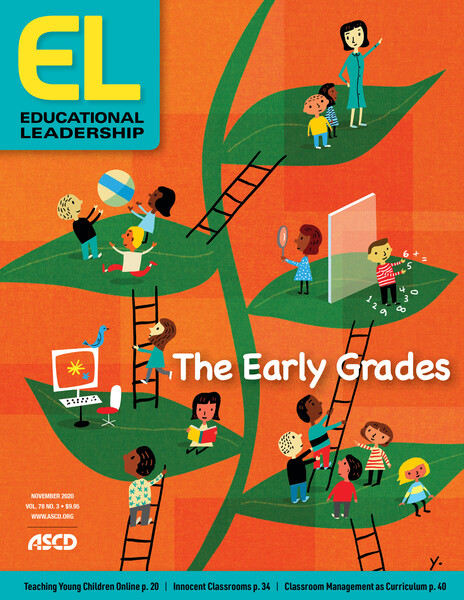Teachers often sense that praising elementary-age students for good behavior makes for stronger classroom management and more on-task behavior. A recent study suggests they are right. The study, led by Brigham Young University professor Paul Caldarella, found a positive linear relationship between a teacher's tendency to praise young students more than reprimand them and how focused students were on schoolwork: "The higher a teacher's [praise to reprimand] ratio, the higher the student's on-task behavior percentage."
Caldarella's team conducted a randomized control study of the effects of praise and corrective remarks. They spent three years observing teachers and students in 151 K–6 classrooms in Missouri, Tennessee, and Utah. Half the teachers used their usual classroom management style; the other half used "Class-Wide Function-related Intervention Teams," or CW-FIT, a classroom management system that reinforces good social skills with praise, in teachers' interactions with students at key times of day.
Researchers tracked the frequency of teacher praise ("verbal indicators of approval" like "Well done, class") and reprimands (remarks like "Kevin, I told you to stop throwing paper"). Comparing the amount of praise versus reprimands a teacher used with the level of their students' on-task behavior showed that more praise correlated with better focus on work for elementary kids. Teachers who used CW-FIT were observed to praise students more, and kids in those teachers' classrooms showed more on-task behavior; in addition, for both the CW-FIT and control groups, a higher praise-to-reprimand ratio was associated with students staying on task better.
The team didn't identify one "threshold" praise-to-reprimand ratio (such as three praising comments for every reprimand) that leads to better behavior, just a clear linear relationship between praise and kids staying on task. The more praise, it seems, the better!
Source: Caldarella, P., Larsen, R. A. A., Williams, L., Downs, K. R., Wills, H. P., & Wehby, J. (2020). Effects of teachers' praise-to-reprimand ratios on elementary students' on-task behaviour. Educational Psychology, 42(4).







